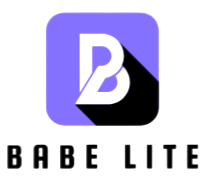Get Your CDL License – Professional Training for Aspiring Truck Drivers
Obtaining a Commercial Driver’s License CDL is a gateway to a rewarding career on the open road, but it is a journey that requires more than just a passion for driving. For aspiring truck drivers, professional CDL training is essential in transforming this passion into a career filled with opportunities, stability, and growth. A CDL is not just a license; it is a credential that represents a driver’s ability to operate large vehicles safely and efficiently, often transporting goods that are vital to the economy. As the logistics industry continues to thrive, the demand for skilled truck drivers is higher than ever, making professional CDL training a critical step toward securing a successful future in this field. Professional CDL training programs are designed to equip students with the necessary knowledge and skills to pass the CDL exam and excel in their driving careers. These programs typically offer a blend of classroom instruction and hands-on driving experience. In the classroom, students learn about the rules and regulations of the road, vehicle inspection procedures, and the technical aspects of operating a commercial vehicle, such as handling air brakes, understanding cargo securement, and navigating through adverse weather conditions.

Understanding federal and state laws, hours of service regulations, and safety protocols is also crucial for ensuring that drivers can comply with the legal standards required in the trucking industry. The hands-on component of CDL training is where students get behind the wheel and apply what they have learned in a controlled environment. Under the guidance of experienced instructors, students practice driving different types of commercial vehicles, including tractor-trailers, tankers, and flatbeds. This practical training covers essential driving maneuvers such as backing up, turning, parking, and coupling and uncoupling trailers. By the time they complete their training, students should feel confident in their ability to handle a commercial vehicle in various traffic and weather conditions, and understand the importance of conducting thorough pre-trip inspections. Moreover, professional CDL training does not just prepare students for the exam; it also prepares them for the realities of life on the road.
Many programs include job placement assistance, helping graduates connect with employers who are actively seeking qualified drivers. This support is invaluable; especially in a competitive job market where having the right connections can make a significant difference and learn more at global CDL school. Additionally, some training schools offer advanced courses that allow drivers to specialize in areas such as hazardous materials HAZMAT transportation, long-haul driving, or operating oversized loads, further enhancing their employability and earning potential. In conclusion, obtaining a CDL is a significant achievement that opens doors to numerous career opportunities in the trucking industry. However, achieving this goal requires dedication, training, and a commitment to safety and professionalism. Professional CDL training provides aspiring truck drivers with the comprehensive education and practical experience they need to succeed on the road. Whether you are just starting your career or looking to upgrade your skills, investing in a quality CDL training program is the first step toward a fulfilling and lucrative career as a professional truck driver.
